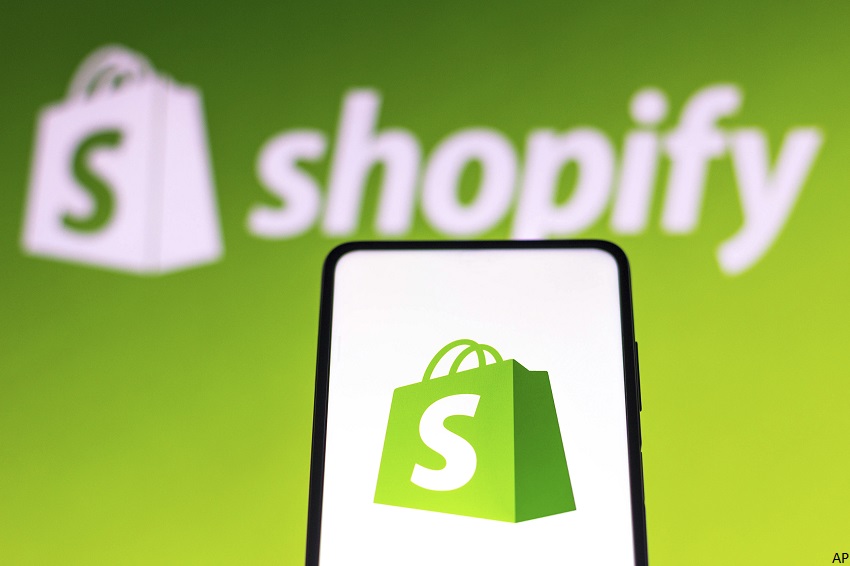
At the start of the week, even before trading began, Ottawa-based e-commerce company Shopify (SHOP) announced that it planned to split its stock. It also announced proposed “updates to its governance structure” under which CEO Tobi Lütke will control 40% of the company’s voting power. This is an improved outcome for investors, as controlling shareholders now have minority voting rights.
Shopify currently has a multiple share class structure, with Class A shares having one vote per share and Class B shares having 10 votes per share, with Class B shareholders having a controlling position equivalent to approximately 51% of the total voting power. If shareholders agree to this new structure, Shopify Director John Phillips will convert all Class B shares owned by him and Catherine Phillips, into Class A shares, and the total voting power held by Class A shareholders would increase from approximately 49% to approximately 59% of the total voting power attached to all of the Company’s shares.
These decisions are pending shareholder approval. Shopify shareholders will meet at its upcoming Annual and Special Meeting of shareholders to be held on June 7, 2022, to discuss these and other issues. The Board recommends investors vote “For” these proposals.
NEI Investments has Shopify as a company on its 2022 Focus List, and the asset manager has been engaging with the firm on various issues, including the unequal voting rights at the company in the past. “Last year we voted against all members of the board, largely because of the dual-class share structure. Perhaps the board has heard these rumblings and is trying to get ahead of things? Regardless, I’m not convinced they have hit on the ideal solution,” says Jamie Bonham, Director of Corporate Engagement with NEI Investments.
Shopify’s Monday Announcement of a Stock Split – and Governance Changes
Via a press release, Shopify said it wanted a 10-for-1 stock split, meaning that for each share of Shopify you own, you’d get 9 additional shares. You can find out more about stock splits here.
The second announcement for which the company is seeking shareholder approval concerns the CEO Lütke’s shares and voting power. The company plans to authorize and issue a new class of share, the “Founder share”, to Lütke, which will provide him with a variable number of votes that, when combined with the Class B shares beneficially owned by him and those close to him will represent 40% of the total voting power attached to all of the Company’s outstanding shares.
This move is aimed at, “..effectively setting and preserving Lütke’s voting power at that level following implementation of the proposal. The Founder share will sunset if Lütke no longer serves the Company in certain capacities (as an executive officer, board member or consultant whose primary engagement is with the Company) or Lütke, his immediate family and his affiliates no longer hold a number of Class A and Class B shares equal to at least 30% of the Class B shares currently held by Lütke and his affiliates,” the release explained. It added that Lütke will agree that, in the event of a sunset of the non-transferable Founder share, he will also convert his remaining Class B shares into Class A shares.
“The proposal represents a marginal improvement for independent investors, moving our voting share from 49% to around 60%. That is certainly better, but is it is not ideal. Removing the ability for intergenerational transfer of voting rights is also positive. But ultimately, the proposal falls well short of the basic principle of one vote, one share. It also raises concerns that the board has bought into the concept of the superstar CEO – that one individual holds all the answers. We would fundamentally disagree with that notion,” Bonham said.
To him, the ideal solution would be to align the company with existing corporate governance best practices and have a one share, one vote structure. “If the CEO wants to have control over 40% of the vote he would have to buy 40% of the stock. That seems fair. Absent the “founder shares” (or other unequal voting rights), Lutke is still the CEO (and Chair) and thus would have a significant say on the corporate strategy and culture. If the board has confidence in that vision, it is their job as an independent oversight mechanism to make that case to investors,” Bonham says, adding that it is unclear in the current proposal what the board would be able to do if a time comes to pass when it doesn’t agree with the priorities of the CEO.
At this point, it might be helpful to understand the purpose and structure of multiple share class companies, of which there are many in Canada.
What are Multiple Share Class Structures?
A company with a “multiple share class structure” has two (or sometimes more) classes of shares with different levels of voting power. These companies are typically are set up this way to concentrate decision-making power in the hands of a relatively small group of key stakeholders.
For example, a company might offer A and B share classes, with owners of each receiving the same dividend payout per share (assuming the company issues a dividend) but with A shares providing 10 times the voting rights, or decision-making power, of B shares. Many companies are set up this way, including Meta – formerly known as Facebook - (FB), Alphabet (GOOG), Zoom (ZM) and Lyft (LYFT), among many others. Canadian companies using a multiple share class structure include Bombardier BBD.B, AGF Management AGF.B, and Rogers Communications RCI.B, and Loblaws (LBE).
In practice, look at Alphabet (GOOG) the parent company of Google. It has a multi-class voting structure, where each share of Class A common stock has one vote and each share of Class B common stock has 10 votes. Because of this, the founders of Alphabet, Larry Page and Sergei Brin control a majority of the company’s voting power, though they own less than 13% of the stock, and have stepped down from running the company. Interestingly, Google’s ‘C’ shares, which hold voting rights, trade at only a slight premium to its ‘A’ shares (GOOG), which hold zero voting rights. This suggests public investors don’t put much weight on the argument – easy to do when shares have almost doubled within the past three years.
By controlling enough A shares these key individuals effectively have the ability to make decisions without having to persuade those owning less powerful B shares to go along.
Who owns these more powerful share classes? Mostly it is the company founders, key executives and major investors when the company goes public. This is seen as a way to ensure that control of the company stays in the hands of those who know it best. Sometimes, the powerful share class is not traded publicly.
This practice is somewhat controversial. Critics say it allows company insiders to reap the financial benefits of taking a company public without ceding control to outsiders. Others argue that more democracy in corporate governance isn't necessarily a good thing, and that those who know the company best should be the ones with ultimate control. In any case, there have been repeated calls for multiple-class shares to be scrapped, or at least reined in.
Investors Challenge this Multiple-Share Class Structure
In October 2018, the CII called on the two largest exchanges in the US, NYSE and NASDAQ, to bring in sunset provisions for multiple-class stock, which would require the share structure to convert automatically to one-share, one-vote “no more than seven years after IPO date”. In the same month, a 23-strong group of company executives, including Berkshire Hathaway’s (BRK.B) Warren Buffett, JPMorgan’s (JPM) Jamie Dimon and BlackRock’s (BLK) Larry Fink, called for the same provision.
Note: Berkshire Hathaway does have two share classes, in order, Buffett claims, to protect the company from short-termist behaviour.
Institutional investors (including large ETF managers like Vanguard, BlackRock and State Street) have more power to direct change at the companies they own. Retail investors less so. With multiple share classes, this power reduces further. Take for example, Alphabet.
At Alphabet’s company meeting, every year since 2017, one has been recurring – the ‘Equal Shareholder’ vote. Each year, shareholders put forward a proposal requesting a one-share-one-vote structure. And each year, the proposal gets the maximum support among all other proposals – though not enough for a majority.
|
Year |
Title |
Support |
|
|
2017 |
Equal Shareholder Voting |
29% |
Against |
|
2018 |
Equal Shareholder Voting |
29% |
Against |
|
2019 |
Equal Shareholder Voting |
30% |
Against |
|
2020 |
Equal Shareholder Voting |
32% |
Against |
|
2021 |
Equal Shareholder Voting |
31% |
Against |
It is an obvious question perhaps – if the vote is doomed to failure, why bother filing at all? Because sometimes, you don’t need to win a majority share of a vote to ‘win’.
At the end of the day, environmental, social and governance (ESG) investing and engagement is about negotiation and dialogue, and with each vote, the management teams get an insight into shareholder sentiment. The current voting structure, for instance, certainly raises governance red flags for Alphabet, and shareholders want that addressed, and so have asked for equality in the voting process. More and more shareholders want this to change, as evidenced by a 32% support for equal voting rights.
Just like this, for the other proposals as well, activist shareholders believe that if enough of the minority shareholders vote in favour of a resolution, it is enough for management and the board to take notice, and perhaps effect change. The change may not come this year, or even next, but eventually, it will.
Will NEI Investments vote in favour of this proposal? At present, it is unclear. “We will have to spend some time absorbing the implications, if any, of the suggested change in voting structure to these issues. We are still assessing our options to determine the best outcome for shareholders,” Bonham says.






















